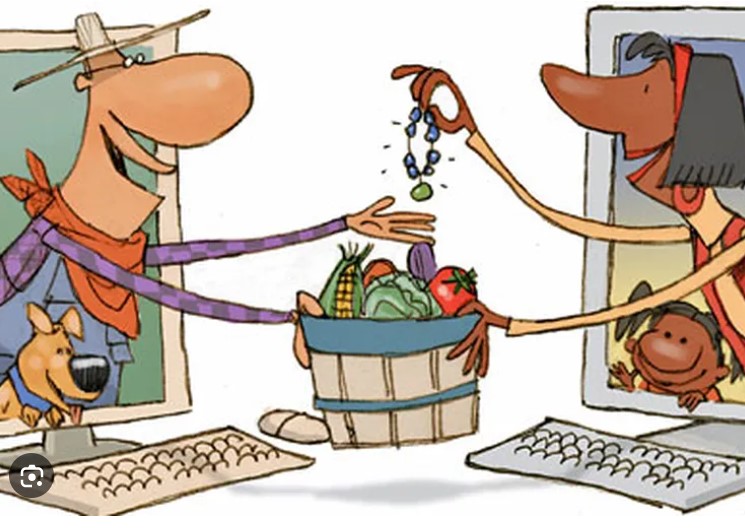
The confusion over the origins of money
I, like most, thought money was invented to replace barter. I, like most, am wrong. Money has little to do with bartering. Money, in fact, has more to do with how society moved from villages and communities to societies and cities.
Going back to the origins of money is interesting. Before money, the main trade was not trading for profit. It was trading for community. You might help a neighbour, give them some bread, offer a loan of your horse or something similar. You didn’t expect anything in return. You did it to support the neighbourhood.
I’ve blogged about this before and feel that I should stop, but I just got a book explaining money for kids, and it starts with how money replaced barter. I was immediately annoyed, as folks told me that this is not true.
As an illustration, in yet another academic paper, Michael Hudson explains:
Neolithic and Bronze Age economies operated mainly on credit. Because of the time gap between planting and harvesting, few payments were made at the time of purchase. When Babylonians went to the local alehouse, they did not pay by carrying grain around in their pockets. They ran up a tab to be settled at harvest time on the threshing floor. The ale women who ran these “pubs” would then pay most of this grain to the palace for consignments advanced to them during the crop year. These payments were financial in character, not on-the-spot barter-type exchange. As a means of payment, the early use of monetized grain and silver was mainly to settle such debts. This monetisation was not physical; it was administrative and fiscal. The paradigmatic payments involved the palace or temples, which regulated the weights, measures, and purity standards necessary for money to be accepted. Their accountants that developed money as an administrative tool for forward planning and resource allocation, and for transactions with the rest of the economy to collect land rent and assign values to trade consignments, which were paid in silver at the end of each seafaring or caravan cycle.
In other words, and this is born out by many other studies, we used to work together and exchange goods and services without payment. We would do this on the basis of a credit for future return.
This is something that I have heard quite regularly. It’s not barter and it’s not a monetary system; it’s a system that says if I do this for you, will you reward me later. That psyche is pretty important in that, if that is the basis of society and community, you can start to understand things about finance and money better.
To be honest, it is also the premise of a community currency. If you haven’t encountered community currencies, here’s a short definition:
Community currency - a complementary currency used by a group with a common bond, such as residents of a locality, association, or members of a business or online community (definition via Wikipedia)
I’ve blogged about this a lot before and the core of the discussion is actually: why do we have money? Why does money exist? Who created money and what is its purpose?
Answer: money was created by governments to control people. The origins of money date back almost 10,000 years to priests and religious leaders – the people who back then were the leaders and governmental orchestrators of society – and, 10,000 years later, it still runs this way today. We use money to offer a real-time payment for things we want today whereas, before money, we offered our services to our community in the expectation that the community would pay-back.
Why is this relevant?
For me it is because there is a market opening for delivering service based upon banking future credits. The best example is Fureai Kippu in Japan, where an hour of time looking after an elderly person can be banked against an hour of time looking after your elderly relative. There are many other examples, and the core is whether we can create money with a purpose?
Chris M Skinner
Chris Skinner is best known as an independent commentator on the financial markets through his blog, TheFinanser.com, as author of the bestselling book Digital Bank, and Chair of the European networking forum the Financial Services Club. He has been voted one of the most influential people in banking by The Financial Brand (as well as one of the best blogs), a FinTech Titan (Next Bank), one of the Fintech Leaders you need to follow (City AM, Deluxe and Jax Finance), as well as one of the Top 40 most influential people in financial technology by the Wall Street Journal's Financial News. To learn more click here...

